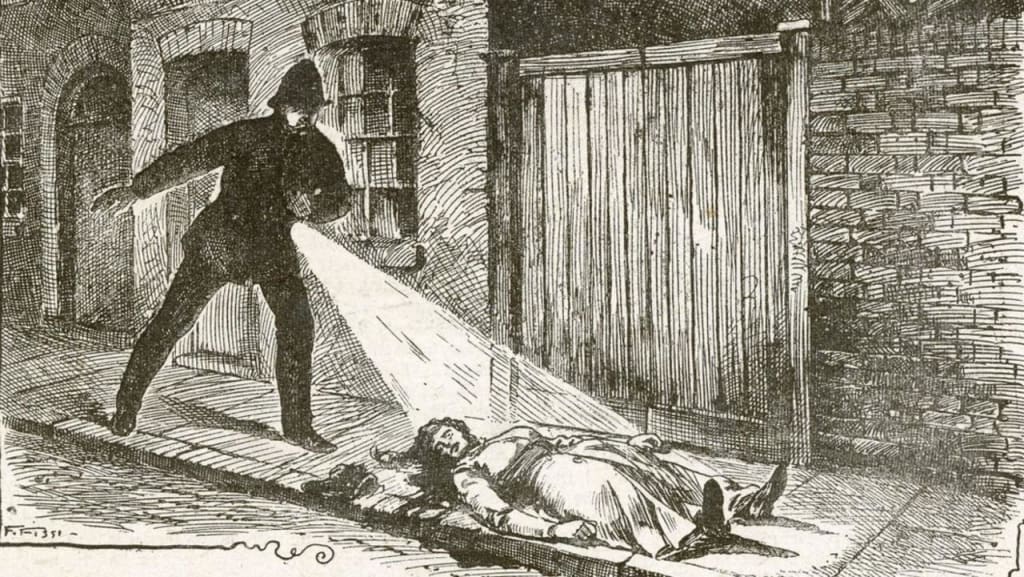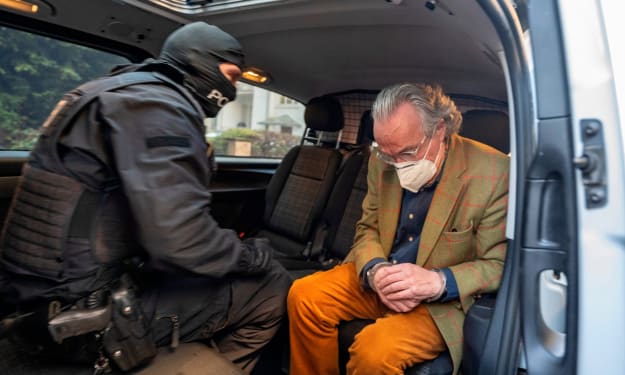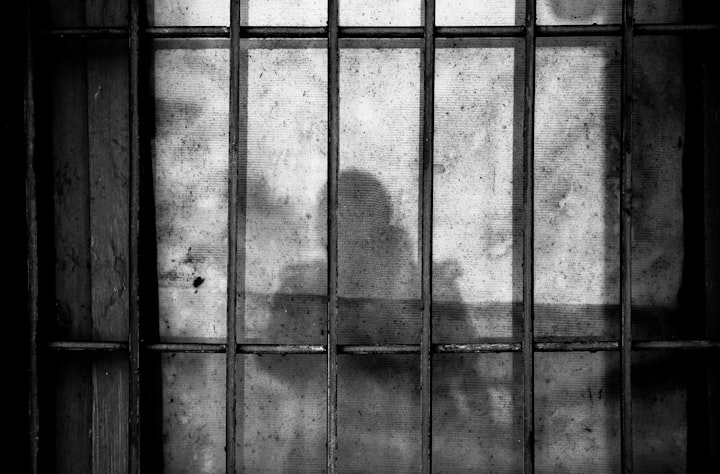"Unmasking Jack the Ripper: The Chilling Tale of London's Whitechapel Murders"
"Exploring the Mystery and Legacy of History's Most Infamous Serial Killer"

I. Introduction
The Whitechapel Murders were a series of gruesome and unsolved murders that occurred in London's East End in the late 1800s. The murders, which were attributed to an unidentified killer known as "Jack the Ripper," had a profound impact on London and the rest of the world. They captured the public's attention and imagination, sparking fear and panic in Whitechapel and beyond. Today, the case remains one of the most famous unsolved mysteries in history, and it continues to fascinate people around the world.
II. Background
In the late 1800s, London was a bustling and rapidly growing city, with a population of over six million people. The city was marked by stark contrasts between the wealthy and the poor, with poverty and disease rampant in many of the city's working-class neighborhoods. One of these neighborhoods was Whitechapel, located in the East End of London. Whitechapel was home to a large population of immigrants, including many Jews and Irish, and it was known for its poverty, crime, and social unrest.
Prostitution had become a way of life for many women in Whitechapel, as it was one of the few ways for them to earn a living. The area was notorious for its brothels and street walkers, and it was not uncommon for women to be assaulted or murdered while soliciting clients.
III. The Murders Begin
The first murder attributed to Jack the Ripper occurred on August 31, 1888, when the body of Mary Ann Nichols was found in a Whitechapel alley. Nichols had been savagely attacked, with her throat slit and her abdomen mutilated. The murder sent shockwaves through the community, and the press quickly dubbed the killer "Jack the Ripper."
Over the next few months, four more murders occurred in Whitechapel, all of which were attributed to Jack the Ripper. The victims included Annie Chapman, Elizabeth Stride, Catherine Eddowes, and Mary Jane Kelly. Like Nichols, each of the victims had been brutally attacked and mutilated. The killer had a specific modus operandi, which included slitting the victim's throat and mutilating the body in a precise and methodical manner.
IV. Police Investigation
The police were heavily involved in the investigation of the Whitechapel Murders, but their efforts were largely unsuccessful. Despite interviewing hundreds of people and following numerous leads, they were unable to identify the killer. Several suspects were considered, including a local butcher and a doctor, but no conclusive evidence was ever found.
One of the most intriguing theories about the identity of Jack the Ripper was that he was a member of the Freemasons, a secretive society that was popular among many of the city's elite. Some believed that the Masonic connection could explain the killer's ability to evade the police and remain undetected.
V. Public Reaction
The Whitechapel Murders sparked widespread fear and panic in the community, particularly among women who worked as prostitutes. Vigilante groups were formed to help search for the killer, and many women stopped working out of fear for their own safety. The media played a significant role in shaping public perception of the case, with sensational headlines and lurid descriptions of the murders.
VI. Legacy
The Whitechapel Murders had a significant impact on the way police investigations and criminal profiling are conducted. The case was one of the first to receive widespread media coverage, and it helped to create a template for the way that serial killers are portrayed in popular culture. Today, the case remains a cultural touchstone, with countless books, movies, and TV shows exploring the mystery of Jack the Ripper's identity.
VII. Conclusion
In conclusion, the Whitechapel Murders were a series of gruesome and unsolved murders that occurred in London's East End in the late 1800s. The killer, known as Jack the Ripper, targeted prostitutes and mutilated their bodies in a precise and methodical manner. The murders sparked fear and panic in the community, and the police were unable to identify the killer or bring him to justice.
Despite the passage of time, the Whitechapel Murders continue to captivate the public's imagination and have had a lasting impact on criminal investigations and popular culture. The case remains one of the most famous unsolved mysteries in history, and it continues to generate theories and speculation about the identity of Jack the Ripper. The Whitechapel Murders serve as a reminder of the dark and violent side of human nature, and they have left an indelible mark on the history of London and the world.
About the Creator
Yuvaraj Murugasan
"Discover thought-provoking content on our page. From latest news and mystery,crime,thiriller,death to cutting-edge technology, we offer something for everyone. Join us for a journey of learning and inspiration. Stay tuned!"






Comments
There are no comments for this story
Be the first to respond and start the conversation.